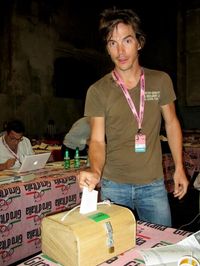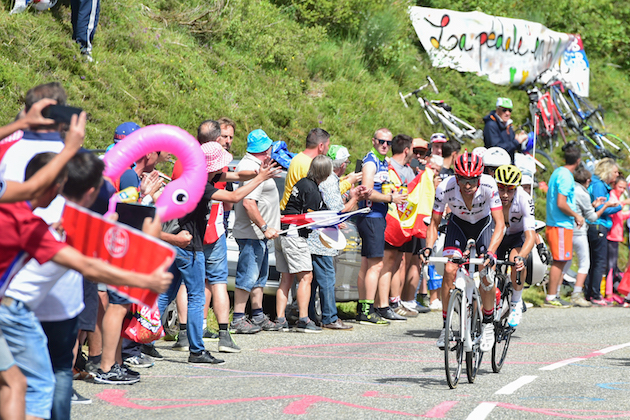Why are short stages so exciting? Tour de France riders and teams have their say
The 2017 Tour de France's short 101-kilometre stage 13 provided one of the best stages of the race so far – should there be more of them?


In a Grand Tour world of 200-kilometre sprint stages, mountain passes and time trials, short and punchy 100-kilometre days stand out. The Tour de France riders and their teams explain why they are so entertaining.
In stage 13 yesterday, 101 kilometres to Foix, cyclists broke free immediately and Alberto Contador (Trek-Segafredo) launched a long-range attack at 65 kilometres remaining.
"You start and you can almost see the finish line. It's like doing a criterium and a BMX and cyclo-cross race together, riders just going mad," Quick-Step Floors sports director Brian Holm told Cycling Weekly.
"It was just an explosion right away yesterday. There should be more of them, but I don't think the riders agree on that one because they're bloody hard. It's a battlefield."
It was reportedly the shortest since 1996, but the organisers cut the ninth stage short to 96 kilometres due to snow.
Contador moved free and pulled with him Mikel Landa (Sky). Others like Nairo Quintana (Movistar) countered and forced race leader Fabio Aru (Astana) to defend all the way to Foix.
Similar stages recently produced similar dramatic results, like one this June at 115 kilometres in the Critérium du Dauphiné and the Formigal stage, 118.5 kilometres, in the Vuelta a España last year.
The latest race content, interviews, features, reviews and expert buying guides, direct to your inbox!
"We saw in the Dauphiné that it's a slaughterhouse stage. It is so entertaining and so fast and so brutal, but for sure the riders' do not like it."
"I prefer days like this, where you can get stuck in and give it full gas," said Simon Yates (Orica-Scott), who attacked on the final descent with Daniel Martin (Quick-Step Floors).
"[The stage to Peyragudes] was more about survival because it was such a long day. You're worried about all sorts like drinking, eating and saving your legs.”
"It is just a really hard day on the bike, but you can't tell," Martin added. "It's so different to [stage 12 to Peyragudes], it's just all out all day."
At the other end, riders suffer for survival. Jakob Fuglsang (Astana) quit due to injuries and the bigger men fought to make the time cut.
"The short stages are all about survival for us big guys," said Taylor Phinney (Cannondale-Drapac), who finished in the last group at 21 minutes, five seconds. "They're way more intense. You have to ride as hard as you can for the entire stage. We're always going pretty hard in general but on the stages like that we are just a little bit more aware of our ticking clock."
"You need a good massage afterwards because everyone is really f***ed afterwards," Team Sunweb general manager Iwan Spekenbrink added. "The guys who raced full-gas for the victory, the GC guys, go crazy, and the guys behind have to fight to stay in the time limit – almost no one can take it easy."
Spekenbrink understandably was in a good mood. Warren Barguil (Sunweb), in the mountains jersey, went free with Quintana and bridged to Contador to win the stage.
"The format of the Tour is long and hard, to see all the villages and build up to the finals. The Tour should keep it's character, but people like these action-packed stages. These stages allow for multiple attacks, and you see these new formats popping up.
“The younger audience likes to see fast and quick, but the Tour has to keep its roots and only stages of 80 to 90 kilometres would not work every day. We have to allow space for these stages to attract the young audience."
Gregor Brown is an experienced cycling journalist, based in Florence, Italy. He has covered races all over the world for over a decade - following the Giro, Tour de France, and every major race since 2006. His love of cycling began with freestyle and BMX, before the 1998 Tour de France led him to a deep appreciation of the road racing season.
